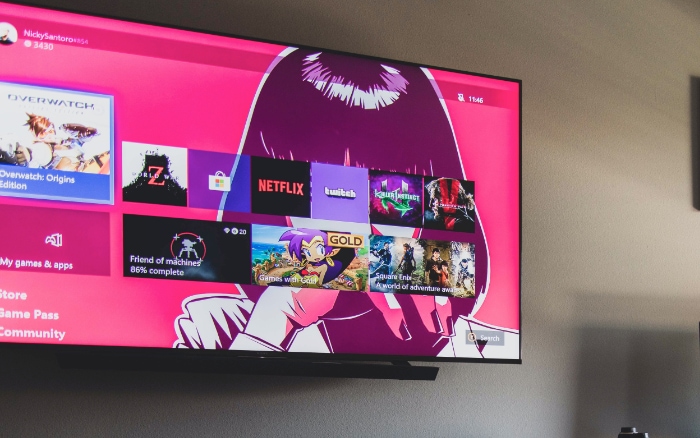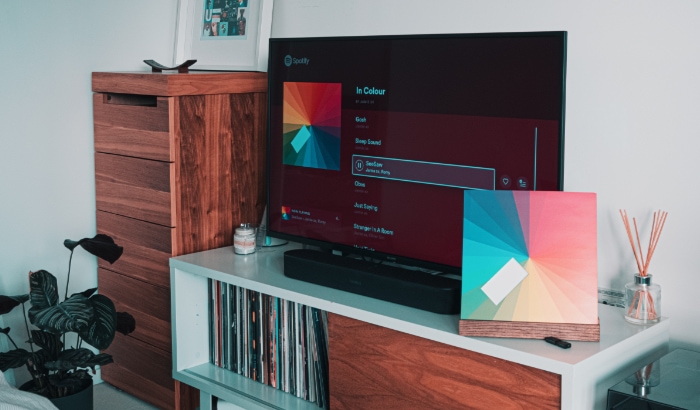Why Is My Smart TV So Slow? Exploring Solutions

Smart TVs have become a mainstay in many homes, transforming the way we consume entertainment and access information.
These high-tech devices blend traditional television with internet connectivity, offering many features from streaming on-demand videos to browsing the web, playing games, and even controlling smart home devices. However, like any other technology, Smart TVs are not immune to performance issues.
One common complaint among users is the noticeable slowdown in their Smart TV's operation over time. This can manifest as buffering videos, lagging interfaces, delayed responses to remote commands, or apps that take an eternity to load. Such issues can significantly hamper your viewing experience, turning a relaxing movie night into a test of patience.
Understanding why your Smart TV is running slow and how to fix it is crucial in maintaining optimal performance and fully enjoying the features your device offers.
Why Is My Smart TV Slow?
Understanding why your Smart TV might be slowing down requires a look at several potential factors. Here, we'll explore the most common reasons for a sluggish Smart TV.
Insufficient Memory
Much like a computer, a Smart TV relies on its internal memory to function smoothly. Every app you use, every video you stream, and every game you play on your Smart TV uses some of this memory. If your TV's memory is near its limit, you might experience slowdowns, freezing, or even crashes.
Poor Internet Connection
Given that many of the features of a Smart TV are internet-based, a stable and fast connection is paramount. If your Wi-Fi signal is weak, or your internet speed is slower than the recommended speed for streaming, you'll likely encounter buffering, slow load times, and other performance issues.
Overloaded Processor
The processor in your Smart TV is like its brain. It handles all the tasks your TV performs, from switching channels to launching apps. However, if you're running multiple resource-intensive apps simultaneously, it might overload the processor, leading to slowdowns.
Outdated Software
Smart TVs, like all digital devices, need software updates to fix bugs, improve performance, and add new features. If your TV's software is outdated, it might not perform as well as it could with the latest updates.
Too Many Running Apps
Smart TVs allow you to open and run multiple apps at the same time. But, much like a smartphone or a computer, having too many apps open simultaneously can slow down the TV, as each open app uses a portion of your TV's resources.
How to Determine If Your Smart TV is Running Slow
If you suspect your Smart TV is running slower than it should, there are several signs you can look for.
Buffering or Slow Loading Times
One of the most obvious signs that your Smart TV is running slow is if it frequently buffers when streaming videos, or web pages and apps take a long time to load. While occasional buffering can occur due to network congestion or other temporary issues, consistent buffering is often a sign of a slow TV or internet connection.
Delayed Response to Commands
If your Smart TV takes a long time to respond to remote commands, this could be another sign that it's running slow. This includes delays when changing channels, adjusting the volume, navigating menus, or opening and closing apps.
Apps Crashing or Freezing
If apps on your Smart TV frequently crash or freeze, this could indicate that your TV's memory or processor is overloaded. This is especially likely if you notice these issues when running multiple apps simultaneously.
Decreased Picture or Sound Quality
Slow performance can lead to decreased picture or sound quality, particularly when streaming content. If you notice that videos are playing at a lower resolution than expected, or the sound quality is poor, this could be a sign that your TV or internet connection is running slow.
Slow Startup Times
Finally, if your Smart TV takes a long time to start up, this could be another indication that it's running slow. While it's normal for a TV to take a few seconds to power on and load the home screen, unusually long startup times could suggest a problem.
How to Fix a Slow Smart TV

Once you've identified that your Smart TV is indeed running slow, the next step is to troubleshoot and fix the issue. Below, we provide step-by-step solutions for each of the potential problems we previously identified.
Clearing Cache and Unnecessary Files
Over time, your Smart TV accumulates temporary files, or “cache,” from various apps. Clearing these files can free up memory and boost your TV's performance. The process varies by brand, but it usually involves navigating to the settings menu, selecting the app or apps you want to clear the cache for, and selecting an option like “Clear cache.”
Improving Internet Connection
If your Smart TV is slow due to a poor internet connection, there are several steps you can take:
- Move your Wi-Fi router closer to your TV, or vice versa.
- Use a wired connection (Ethernet) instead of Wi-Fi, if possible.
- Upgrade your internet plan to a faster speed, if available.
- Reduce the number of devices connected to your Wi-Fi network.
- Restart your router to clear any temporary issues.
Updating the TV's Software
Keeping your Smart TV's software up to date can help ensure optimal performance. You can usually find the option to check for software updates in the settings menu. If an update is available, make sure to download and install it.
Limiting the Number of Running Apps
Closing unnecessary apps can free up memory and processing power, potentially speeding up your Smart TV.
The method for closing apps varies by TV brand, but it often involves pressing a certain button on your remote to bring up the list of running apps, then selecting the app and choosing an option like “Close” or “Exit.”
Factory Reset (As a Last Resort)
If all else fails, you may want to consider performing a factory reset. This will return your TV to its original settings, potentially resolving any issues causing the slowdown.
Be aware, though, that a factory reset will erase any personal settings and downloaded apps, so you'll need to set up your TV again from scratch.
When to Seek Professional Help
While many issues causing a slow Smart TV can be resolved at home, there may be situations where seeking professional help is the best course of action. Here are some indicators that it might be time to call in the experts.
Persistent Issues After Troubleshooting
If you've followed all the steps outlined above and your Smart TV is still running slow, it could indicate a more serious issue that requires professional attention. Persistent problems could be due to a hardware fault, such as a failing processor or memory chip, which are not user-serviceable components.
Physical Damage to the TV
If there's visible physical damage to your Smart TV, such as a cracked screen or damaged ports, you should seek professional help. These issues can't be fixed with software updates or settings adjustments and may require parts replacement.
TV Fails to Power On
If your Smart TV fails to power on or frequently shuts down on its own, it's advisable to get professional help. These issues could be due to a power supply problem or other serious hardware fault.
Unusual Noises or Smells
If your Smart TV is making unusual noises, like buzzing or clicking, or you notice a burning smell, turn off the TV immediately and unplug it. These could be signs of a serious issue, such as an electrical short or overheating components, which could potentially be dangerous.
When seeking professional help, it's best to reach out to the manufacturer's customer support in the first instance. They can provide guidance based on your specific model and may offer repair services.
If your TV is still under warranty, repairs might even be covered at no cost to you. Alternatively, you can consider hiring a reputable local electronics repair service.
Remember, while it can be frustrating when your Smart TV doesn't work as expected, trying to fix serious hardware problems yourself can be risky and may void your warranty. When in doubt, it's always best to seek the advice of professionals.
Conclusion
A smoothly functioning Smart TV is more than just a luxury – it's a necessity for accessing entertainment, information, and even social connectivity. When your Smart TV slows down, it can significantly hamper your viewing experience, transforming a source of relaxation into a cause of frustration.
However, understanding the reasons behind the slowdown and knowing how to fix them can help you restore your device to its optimal performance.
From clearing cache and unnecessary files to ensuring a robust internet connection, updating your TV's software, managing your running apps wisely, and performing a factory reset as a last resort, these steps can help address most issues causing your Smart TV to run slow.
Yet, it's important to remember that not all issues can or should be fixed at home. If your Smart TV continues to underperform despite your best efforts, or if you notice physical damage or other serious signs like unusual noises or smells, it's time to seek professional help.
By staying proactive about your Smart TV's performance and seeking expert advice when needed, you can ensure a seamless and enjoyable viewing experience.
As technology continues to evolve, so too will the capabilities and complexity of our Smart TVs, making it even more crucial to understand how to maintain and troubleshoot these devices.
Ultimately, a well-functioning Smart TV not only enhances your personal enjoyment but also allows you to make the most of today's digital entertainment opportunities. After all, your Smart TV is meant to entertain you, not the other way around!


